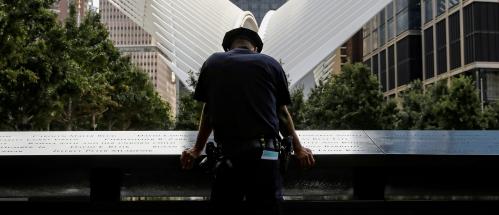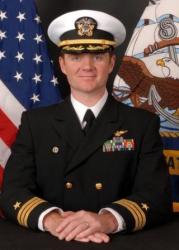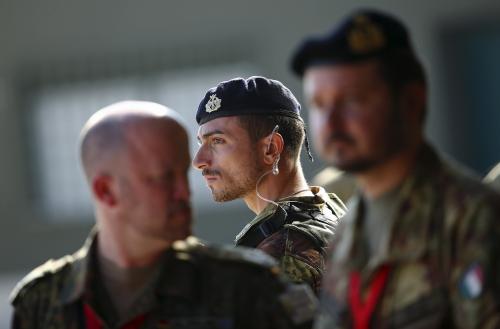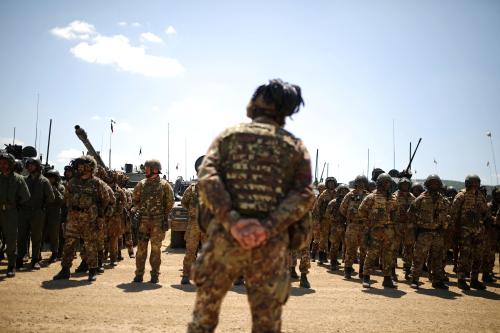On September 11, 2018, someone who was born on 9/11 will join the U.S. military.
That isn’t as shocking to me as it may be to you. Over my military career—I’m a commander in the U.S. Navy—I’ve told all my new sailors the story of my hometown. Per capita, Glen Rock, New Jersey lost more people than almost anywhere in the 9/11 attacks. Everyone who died had young families. They were hard-working people pursuing their American dreams: people like Grace Allegra-Cua who was 40; Anthony DiOnisio who was 38; Brendan Dolan who was 37; and Tim Finerty, 33. Glen Rock lost 11 citizens that morning—about one person for every three city blocks. It was a tough day.
I’ve told their story hundreds of times. I also ask new members of my team where he or she was on that fateful day in 2001. Years ago, new accessions said they were in boot camp, and then they were in high school, then middle school, and then third grade. Finally, last spring one my newest sailors answered: “Skipper, I have no idea. I was only two years old…but my high school had three soldiers killed since then.”
He and I see 9/11 from two very different perspectives. My town of Glen Rock took our hit from a blunt instrument on one catastrophic autumn day, while his small rural hometown felt a sharp, repetitive pain every year since. Three dead sons over a decade and even more wounded. Probably at least one suicide and several veterans struggling with drug addiction.
Current military operations continue to take their toll. Just last week, a great American was shot and killed in Afghanistan: Sergeant Major Timothy Bolyard was the top-ranking enlisted soldier in the 3rd Squadron, 1st Security Force Assistance Brigade. His small West Virginia hometown continues to fight the longest war in U.S. history. He was on his seventh deployment.
With parental consent, the minimum enlistment age in all four services is 17. Today’s recruit will join a military in transition. The 2018 National Defense Strategy declares: “Inter-state strategic competition, not terrorism, is now the primary concern in U.S. national security.” What will the next generation of recruits bring to the all-volunteer service? A recent profile in the Wall Street Journal described “Generation Z”—people born after 1997—as “more competitive and pragmatic, but also more anxious and reserved, than millennials.” The formative national event in their lives was the great recession, not 9/11. Many value financial security and rightfully fear student loans. They are quick studies and tecnologically proficent. Generation Z is also the most racially diverse in American history.
We cannot tailor our strategy around generational differences, but we must cultivate talent and clearly articulate evolving missions to an all-volunteer force with a unique perspective. It may seem counterintuitive, but the modern U.S. military is incredibly well suited for Generation Z. After years of stagnation, the Pentagon has recommitted to disruptive innovation and rapid change, as demonstrated, for instance, by Friday’s announcement to commit $2 billion towards artificial intelligence. Recent modernization of the retirement program created a very competitive matching 401k system while retaining the essential elements of a traditional pension. Expansion of tuition assistance programs, incorporation of the GI Bill, competitive salaries, and tailored bonus structures all create opportunities to recruit and retain a diverse cross-section of a talented generation still reeling from the great recession.
However, perhaps more than their predecessors, “Gen-Z” will expect and demand that civilian and military leaders explain America’s role around the world—both the persistent fights in the Middle East and our commitment to the liberal world order we’ve maintained over the last 70 years. I think that is a fair trade.
On the 17th anniversary of that horrible day, I am thankful that somewhere in America, another patriot is joining the military team I am proud to be a part of. I look forward to learning how they see the world. Frankly, we could use some fresh ideas.
And, I wish them a very happy birthday.




Commentary
17 years after 9/11, what it means to have Generation Z military
September 10, 2018